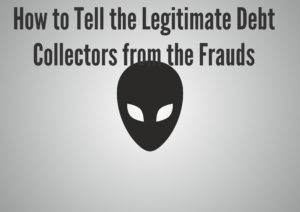By: Robert J. Nahoum
Anyone who has ever dealt with a debt collectors knows how invasive and annoying they can be. The phone rings incessantly and the letters in the mail never seem to stop. Sometimes debt collectors cross the line between aggressive debt collection and harassment. When they do cross that line, Federal consumer protection laws step in to back up the consumer. Federal debt collection laws known as the Fair Debt Collection Practices Act (FDCPA for short) regulates the collection of consumer debts by third party debt collectors.  The FDCPA precludes debt collectors from using false, misleading, deceptive and harassing debt collection tactics.
The FDCPA includes a private right of action under which a consumer may sue a debt collector for FDCPA violations. If a debt collector is found to have violated the FDCPA, the consumer may recover up to $1,000.00 in statutory damages, plus actual damages (for example pain and suffering) and most importantly, your reasonable attorneys’ fees. Like many other consumer protection laws, the FDCPA is what is called “fee shifting†– meaning that the obligation to pay the consumers attorneys’ fees shifts to the debt collector. The FDCPA empowers the consumer to swing the pendulum in the other direction and sue the debt collector for its wrongful conduct.
Despite the protections of the FDCPA, there are criminal enterprises out there who pose as legitimate debt collectors and try to illegally collect debts from consumers that is not owed. The scheme works like this, the bogus debt collector calls a consumer posing as a debt collector and convinces the consumer to make a credit or debit card payment towards a debt it claims to be owed. Once the funds transfer, the money is gone.
So how is a consumer supposed to know whether or not the person on the phone is legitimate or not? According to the consumer watchdog The Consumer Financial Protection Bureau (“CFPBâ€), “here are a few warning signs that could signal a debt collection scam:
- The debt collector threatens you. Legitimate debt collectors probably won’t claim that they’ll have you arrested or claim that they or their employees are law enforcement officers.
- The debt collector refuses to give you information about your debt or is trying to collect a debt you do not recognize. You have certain rights to ask a debt collector to verify the debt.
- Ask for an explanation in writing before you pay.
- The debt collector refuses to give you a mailing address or phone number.
- The debt collector asks you for sensitive personal financial information. You should never provide anyone with your personal financial information unless you are sure they’re legitimate.
If you think that a caller may be a fake debt collector:
- Ask the caller for his or her name, company, street address, telephone number, and professional license number. Many states require debt collectors to be licensed. Check the information the caller provides you with your state officials, or the state in which the debt collector holds a license. If the caller refuses or is unable to provide you with information about his company, or if you can’t verify the information he provides, do not give money to the caller or company.
- Tell the caller that you refuse to discuss any debt until you get a written “validation notice.” This notice must include:
- The amount of the debt
- The name of the creditor you owe
- A description of certain rights under the federal Fair Debt Collection Practices Act.
If a caller refuses to give you all of this information, consider requesting this information in writing or seeking assistance before paying the debt to make sure the debt, and the company, are valid.â€
If you need help settling or defending a debt collection lawsuit, stopping harassing debt collectors or suing a debt collector, contact us today to see what we can do for you.
The Law Offices of Robert J. Nahoum, P.C
(845) 232-0202
www.nahoumlaw.com
info@nahoumlaw.com

